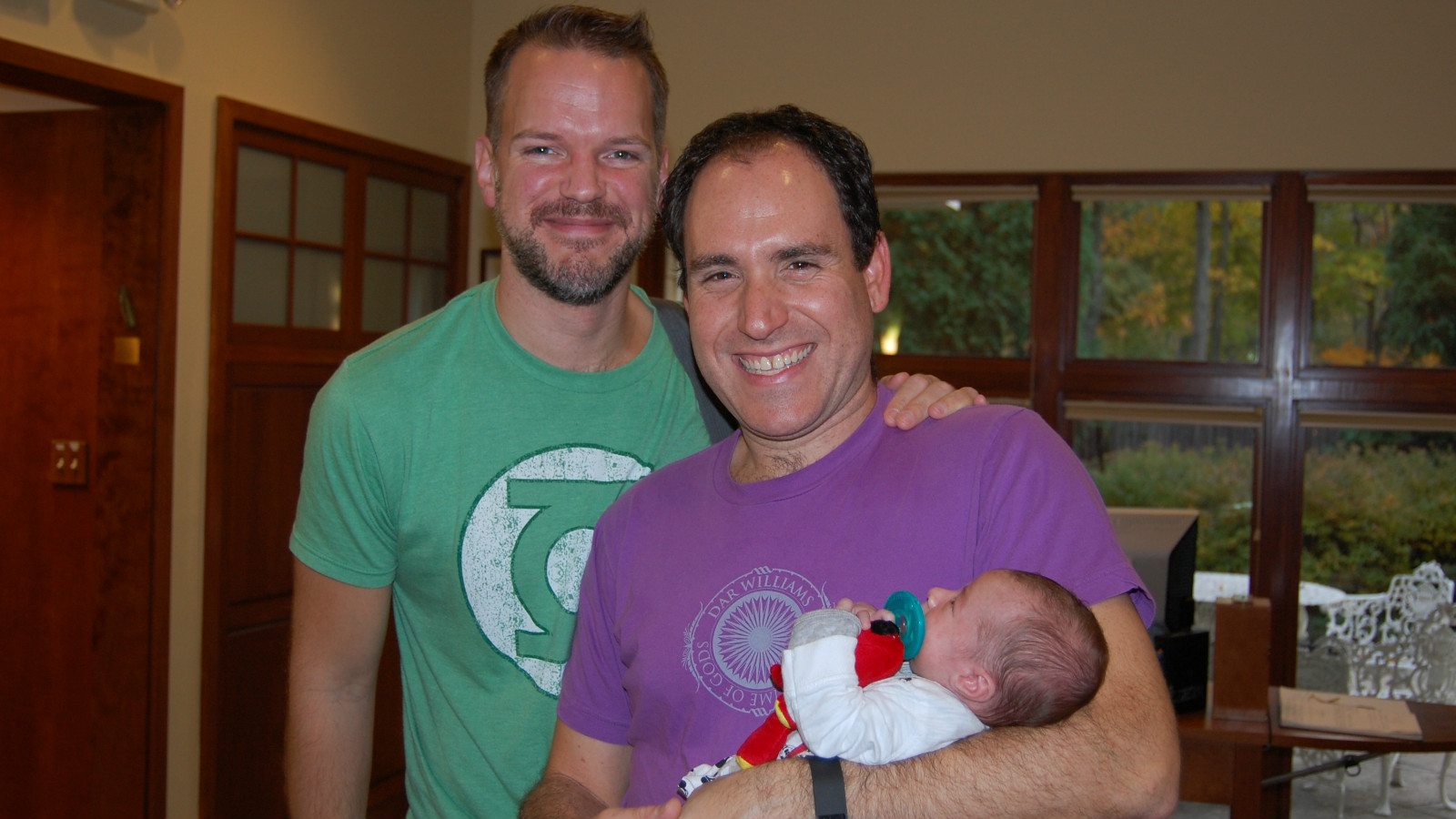Parents may want to consider converting their infants or children to Judaism for a variety of reasons. Some Jewish parents are intermarried, and the gentile spouse does not plan to become Jewish, but both parents agree that the single religion of Judaism will be in the child’s best interest. Perhaps either a gentile parent in an intermarriage or a couple made up of two gentile parents decide to convert to Judaism, but their children were born before the conversion. Perhaps a Jewish couple adopts a gentile child.
In all these cases, conversion to Judaism can be seen as a desirable option for the infants and minor children. (A minor child in Jewish law means the child is under age 12 for a female and under age 13 for a male.)
When Must a Child Be Converted?
In the case of intermarriage, the child of a Jewish woman and her gentile male spouse is universally recognized as Jewish, so that the conversion of the infant or child is unnecessary. A more delicate and difficult situation arises when the infant or child is born to a Jewish father and gentile mother. The Orthodox and Conservative movements do not recognize such a child as legally Jewish, so that, in such cases, Orthodox and Conservative parents need to have their child legally converted to Judaism.
Under the Reform movement’s patrilineality principle, the child of a Jewish father and gentile mother is presumed Jewish if the child is raised exclusively in Judaism and engages exclusively in public Jewish acts. The children, then, are legally Jewish. However, some of these Reform parents may voluntarily choose to have their children converted for various reasons, such as wider acceptance of the child’s Jewishness by the non-Reform Jewish community.
With your help, My Jewish Learning can provide endless opportunities for learning, connection and discovery.
Jewish parents in all movements need to convert adopted gentile minors for the minors to be considered Jewish. The adoption itself, or even the raising of the children as Jewish, does not make the child Jewish.
Jewish Law Regarding Conversion of Children
The conversion of an infant or child has Jewish legal sanction. According to the Talmud (Ketubot 11a), it is permissible for a religious court (a beit din) to convert a gentile infant. The basis in Jewish law is that it is a privilege to be Jewish (Shulchan Arukh, Yoreh Deah, 268:7). Therefore, a minor can be converted even though not mature enough to understand the act because making the minor Jewish is performing a favor for that infant or child.
Jewish law also allows those people converted as an infant or child to renounce the conversion when they reach maturity. After girls reach 12 or boys 13, converted infants and children can legally reject the conversion and go back to their previous religion. If they accept Judaism or are silent, they are deemed to be considered adult converts.
One potential problem for parents seeking to convert minors is that not all movements accept conversions performed by rabbis in other movements. Thus, Orthodox rabbis, for example, do not, in general, accept conversions performed by non-Orthodox rabbis. Conservative rabbis, in general, accept all Orthodox conversions and all Reform conversions, if the Reform conversions conform to the Conservative legal requirements discussed below. Reform rabbis, in general, recognize all conversions performed by Orthodox and Conservative rabbis. Because of this confusing situation, parents ought to discuss their choice with their rabbi.
Conversion Procedure for Children
The conversion of a female infant or child according to Conservative and Orthodox practices only requires tevilah (immersion in a ritual bath called a mikveh). A male child also requires immersion in the mikveh. While parents might have trepidation about immersing a newborn completely in water, the supervising rabbi will facilitate the procedure with great care ensuring that the infant is safe during this momentary immersion. Prior to the immersion, the male must have a brit milah (a legal circumcision ceremony performed by a mohel, traditionally an observant person trained in circumcision). If possible, this should be done on the eighth day after the birth of the boy. If a circumcision has already been performed, a drop of blood needs to be drawn in a ceremony called hatafat dam brit. A Hebrew name can then be given to the child, though some wait to give the name until after the tevilah ceremony. There is usually a wait of a couple of weeks between the circumcision and the immersion.
A beit din, usually consisting of three rabbis, is convened for the immersion. Parents can enter the mikveh. If the children are old enough, they recite the needed prayers; if not, a rabbi does so for them. After the tevilah ceremony is completed, and a name chosen if one has not already been selected, the child is declared by the beit din to be Jewish.
Reform requirements for the conversion of infants and children vary. Some rabbis may simply have a naming ceremony, while others will include some or all of the same requirements used by the Orthodox and Conservative rabbis.
For detailed explanation of all of these ceremonies, it is crucial to consult a rabbi.
The conversion of infants and children is, of course, a moment of joy for parents, but it is also such a moment for the entire Jewish community. New children add precious lives to the community and bring with them that most valuable idea of hope for the future.
Reprinted with permission from www.convert.org.
Talmud
Pronounced: TALL-mud, Origin: Hebrew, the set of teachings and commentaries on the Torah that form the basis for Jewish law. Comprised of the Mishnah and the Gemara, it contains the opinions of thousands of rabbis from different periods in Jewish history.


